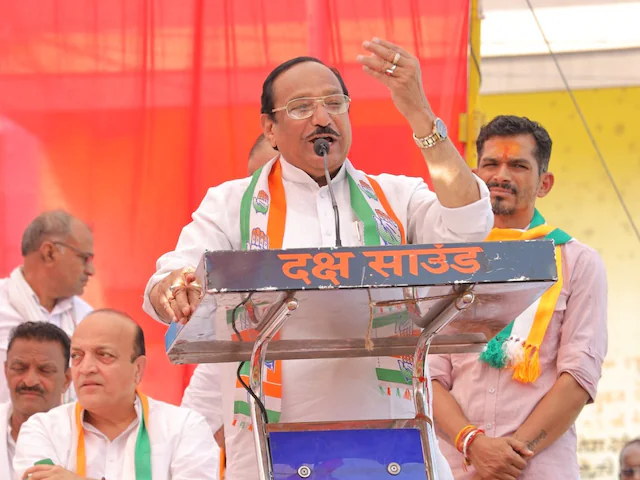On May 9, 2024, a video emerged where a Congress candidate from Madhya Pradesh’s Ratlam, Kantilal Bhuria, was heard making a controversial statement during an election rally. Bhuria, addressing the public, suggested that if Congress came to power, individuals with two wives would receive Rs 2 lakh a month. This statement has sparked significant debate and criticism.
In his speech, Bhuria, who has previously served as the Union minister for tribal affairs in the United Progressive Alliance (UPA) government, stated, “If Congress comes to power, as our manifesto states, every woman will get Rs 1 lakh in her bank account. Women from each house will get Rs 1-1 lakh. Those who have two wives will get Rs 2 lakh…,”.
Madhya Pradesh Congress chief Jitu Patwari supported Bhuria’s statement, stating, “Bhuria ji has made a terrific announcement just now that a person with two wives will get double (of the Rs 1 lakh financial aid).” The Congress’ manifesto outlines the Mahalaxmi scheme, promising women a monthly financial aid of Rs 8,500 until they move out of the below-poverty line (BPL) segment.
The Bharatiya Janata Party (BJP) has called for action from the Election Commission of India against Bhuria for his remarks. Critics have pointed out that the Congress’ scheme to give Rs 1 lakh to every woman if voted to power could have severe economic repercussions.
The Mahalaxmi scheme, as outlined in the manifesto, aims to provide Rs 1 lakh per year to every poor Indian family as an unconditional cash transfer. However, the proposal lacks clarity on funding and risks fostering a culture of dependency rather than empowering women.
The scheme in the manifesto reads, “Mahalakshmi: Inequality of income and opportunity remains India’s ugliest truth. It is the moral and political responsibility of any government to ensure that every Indian family is assured of a basic income every month. Congress resolves to launch a Mahalakshmi scheme to provide Rs 1 lakh per year to every poor Indian family as an unconditional cash transfer. The poor will be identified among the families in the bottom of the income pyramid. The amount will be directly transferred to the bank account of the oldest woman of the household. Absent a woman, it will be transferred to the account of the oldest member of the family. The scheme will be rolled out in stages and reviewed every year to assess the number of beneficiary families and its impact on alleviating poverty.
Moreover, critics argue that the injection of such a massive amount of cash into the economy could lead to inflationary pressures, especially in rural areas where the cost of living is relatively low. The sudden inflow of cash without any productive activity attached could result in price hikes that would erode the purchasing power of the poor.
Furthermore, Congress has been criticised for its apparent Muslim appeasement politics. Prime Minister Narendra Modi has accused the party of attempting to seize properties and distribute them to Muslims, those who produce a high number of offspring, and infiltrators. The Congress’ manifesto has also hinted at decriminalising triple talaq and reintroducing the Communal Violence Bill.
Given the context of Congress’s pitch for minority votes, Bhuria’s statement signals a dangerous trend. Polygamy is common in the Muslim community, and Bhuria’s suggestion that individuals with two wives would receive double the financial aid if Congress comes to power has been interpreted as a bid to secure Muslim votes. Critics argue that such statements undermine the dignity of labour and entrepreneurship, as well as the importance of women’s empowerment.



















Comments